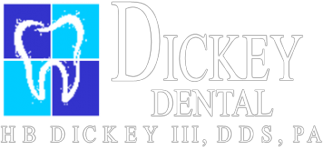Oral health is a critical aspect of overall wellness, and at Dickey Dental in Rockhill, SC, Dr. Hugh Brad Dickey emphasizes a comprehensive approach. While most people focus on teeth and gums, the tongue is another crucial player in maintaining oral health. Tongue cleaning, often overshadowed, is a simple yet effective practice with far-reaching benefits.
Understanding the Role of the Tongue in Oral Health
The tongue is more than just a taste organ; it’s a harbor for bacteria and food particles. A healthy tongue is pink and covered with small nodules called papillae. However, when not cleaned regularly, a coating of bacteria, food debris, and dead cells can form, leading to oral health issues.
The Impact of Neglected Tongue Hygiene
Neglecting tongue cleaning can lead to bad breath (halitosis) and a diminished sense of taste. More importantly, the bacteria build-up can contribute to tooth decay, gum disease, and other oral infections. These issues highlight the need for a holistic approach to oral care, encompassing Dental Exam and Cleaning and thorough at-home practices.
The Benefits of Regular Tongue Cleaning
Fresh Breath and Improved Taste
One of the most immediate benefits of tongue cleaning is fresher breath. Removing the bacteria and food particles reduces the compounds that cause bad odor. Additionally, a clean tongue can enhance your sense of taste, allowing you to enjoy your meals more fully.
Reduced Oral Bacteria
Regular tongue cleaning can significantly reduce the amount of harmful bacteria in the mouth. These bacteria are responsible for various oral health issues, including plaque buildup, which can lead to Periodontal Treatment if not addressed.
Enhanced Overall Dental Health
A clean tongue contributes to overall dental health. It can help prevent conditions that might require treatments like Root Canal Treatment or CEREC One-Day Crowns and Onlays.
How to Clean Your Tongue Effectively
Tools for Tongue Cleaning
While a toothbrush can be used, a tongue scraper is more effective. These tools are specifically designed to conform to the tongue’s shape, removing more bacteria and debris than brushing alone.
The Technique
Start at the back of the tongue, and gently pull the scraper to the front, rinsing it after each pass. Be careful not to press too hard to avoid irritation. Incorporating this into your daily routine, preferably each morning, can make a significant difference.
Incorporating Tongue Cleaning into Your Oral Care Routine
A Holistic Approach to Oral Hygiene
Tongue cleaning should be part of a broader oral care routine. This includes regular brushing, flossing, and using mouthwash. For comprehensive care, services like Cosmetic Dentistry and Dental Implants can address aesthetic and functional concerns, respectively.
The Role of Professional Care
Regular dental visits for exams and cleanings are crucial. They allow for early detection of oral health issues and provide professional cleaning opportunities, which can address areas difficult to maintain at home.
Beyond Oral Health: The Systemic Connections
The Mouth-Body Link
Oral health is intricately linked to overall health. Research suggests that oral bacteria and the inflammation associated with gum disease might play a role in some systemic diseases. Thus, maintaining a clean tongue and good oral hygiene can have broader health implications.
Dietary Considerations
A healthy diet supports oral health. Foods rich in vitamins, minerals, and fiber promote a healthy oral environment. Conversely, sugary and acidic foods can contribute to tooth decay and gum disease.
Embracing a Complete Oral Hygiene Practice
In summary, tongue cleaning is a simple yet impactful practice. It complements other dental care routines and professional treatments, contributing to a healthier mouth and body.
Ready to Enhance Your Oral Health?
Contact Dr. Hugh Brad Dickey and his team at Dickey Dental. Call us at 803-329-2126 for tailored advice and comprehensive dental care in Rockhill, SC.
Sources:
- American Dental Association (ADA): www.ada.org
- Journal of Clinical Periodontology: Journal of Clinical Periodontology
- National Center for Biotechnology Information (NCBI): www.ncbi.nlm.nih.gov


